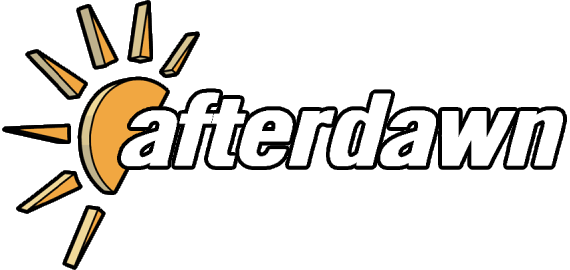The Witcher 2:n luvattomia lataajia muistetaan kirjeellä
Keskustelu DRM-suojaamattomien pelien luvattomasta lataamisesta sai eilen yllättävää lisäväriä, kun ensi vuonna julkaistavan The Witcher 2 -pelin kehittäjä CD Projekt kertoi turvautuvansa uhkailukirjeisiin luvattomien lataajien kohdalla.
CD Projektin johtoportaassa työskentelevä Marcin Iwiński kertoi Eurogamer-sivustolle yrityksen neuvottelevan sopimuksia lakifirmojen ja torrent-latauksia seuraavien tahojen kanssa, jotta suurimmissa maissa luvattomat lataajat saataisiin tilivelvollisiksi.
The Witcher 2:n luvattomille lataajille aiotaan lähettää kirje, jossa vaaditaan korvauksia tai muussa tapauksessa edessä voi olla oikeudenkäynti.
Luvattomien lataajien henkilöllisyyden selvittäminen vaatii joissain maissa mm. oikeudessa vierailua ja runsaasti asiakirjojen täyttöä, joten kyseessä ei ole yksinkertainen prosessi. Iwińskin mukaan luvattoman lataamisen suuri suosio on kuitenkin tuonut apajille useita näihin toimeksiantoihin keskittyneitä lakifirmoja ja muita toimijoita, joten luvattomien lataajien muistaminen kirjeellä ei ole nykyään vaikeaa tai edes kallista.
The Witcher 2:n julkaisu tapahtuu näillä näkymin ensi vuoden toukokuussa, ja peliä on tarkoitus myydä ensimmäisen vuoden aikana 1,3 miljoonaa kappaletta. Pelin PC-version voi ennakkotilata DRM-vapaana Good Old Games -kauppapaikan kautta.







11 KOMMENTTIA
..Andy..1/11
Itseäni peli ei kiinnosta pätkääkään ja lisäksi, kuka tumpelo käyttää enää torrenteja?
syrtek662/11
Jos ei torrenteja niin mitä sitten? Magnetic links?
Kajtu3/11
Eipä tämä poista vielä private trackereiden helppoutta/kummituslatailua.
miketso4/11
Omasta mielestäni tuo uhkailukirjeiden lähettäminen on kyllä aika typerää jos niissä ei voida olla edes varmoja vastaanottajan syyllisyydestä. Ne lakifirmathan siinä vain eniten nettoavat.
Mitä ne muut ihmiset sitten käyttävät jos eivät torrentteja?
xbkrypt0n5/11
1980-luvun systeemejä voi edelleen käyttää.
http://en.wikipedia.org/wiki/Usenet
TuPP36/11
Tuleeko VPN:n mukana myös ilmainen foliohattu vai täytyykö se valmistaa itse?
Minusta tuntuu ettei tule peliyhtiölle kovin halvaksi alkaa jahtaamaan yksittäisiä lataajia ja yrittää niiltä periä satoja tuhansia jotta pääsisi omilleen. Harva näitä tulee maksamaan ja peliyhtiö joutuu vielä enemmän tappiolle.
raven0ak7/11
kylmä totuushan on se että vaik väki kuinka vouhottaa ja syytää rahaa piratismin vastasee toimintaa, ni ilmio on jo tullut jäädäkseen eikä ole lähös pois...tää o just tätä "turhaa taistelua tutkainta vastaa"...
trooper788/11
Kuten raven0ak tuossa sanoi, ei warettamisesta päästä koskaan eroon. Sama kuin 90-luvulla, jolloin koitettiin pelien kopiointia vähentää kaikenmaailman "opaskirja-koodeilla"... pelit kräkättiin ja kuka ei moiseen pystynyt kopioi ne manuaalit => pelien hinnat nousi, myynti vähemi ja kopiointi lisääntyi. Samaa noidan kehää mennään nytkin. Kymmenen vuotta eteenpäin saa yhdestä pelistä pulittaa saturaisen verran =/
nuppi9/11
Sama on ollut Suomessa käytössä hieman eri muodossa. Eli sovitellaan nettipiraattien kanssa, jotka ovat jääneet kiinni maksa 3000 euroa tai haastetaan oikeuteen tyylillä. Toistaiseksi kaikki ovat maksaneet. Kyseisillä korvauksilla ja oikeudessa tuomituilla korvauksilla rahoitetaan uusia oikeudenkäyntejä nettipiraatteja vastaan ja tekijänoikeusjärjestöjen toimintaa. Tekijät eivät saa yhtään noista korvauksista. Ainoastaan tekijänoikeusjärjestöt sekä suuret levy - ja elokuvayhtiöt.
agent01010/11
Suomessa minun käsitykseni mukaan pitää mennä käräjien tms. kautta että saadaan ip-osoitteen haltija selville.
Vaikka nämä tekijänoikeuksien "puolustajat" lähettävät operaattoreille parhaimmillaan 10000 sähköpostia "warettajista" jotka heidän ohjelma on huomannut.
Poikkeuksena sitten nämä uhkaukset tms. joihin operaattorilta saadaan HETI haltija ja osoite selville poliisin toimesta RIIA tai TTVK ei omaa viranomaisen valtuuksia VIELÄ.
Milloinkohan on arkipäivää että RIIA:n erikoisjoukot ITSE ratsaavat pertti perttisen koneen, koska havaitsivat P2P liikennettä, joka oikeasti oli spotify, voddler, linux distro tjsp.
TTVK laseilla: P2P protokola = laiton
Tämä tuntuu siltä että RIIAA kohta lukee postisi josko olisit vaikkapa lainannut jonkun sanoituksia emailissa tms..
himpo11/11
Todennäköisin syy jättää DRM pois on helpottaa pelin laitonta levitystä, eli enemmän haastekirjeitä = enemmän rahaa.
Peli tullaan myös todennäköisesti vuotamaan bittorrent sivustoille ihan firman puolesta ja ennen virallista julkaisua, eli enemmän haastekirjeitä = enemmän rahaa.
Toivottavasti tämä pelleily ei mene läpi suomessa.
TÄMÄN UUTISEN KOMMENTOINTI ON PÄÄTTYNYT